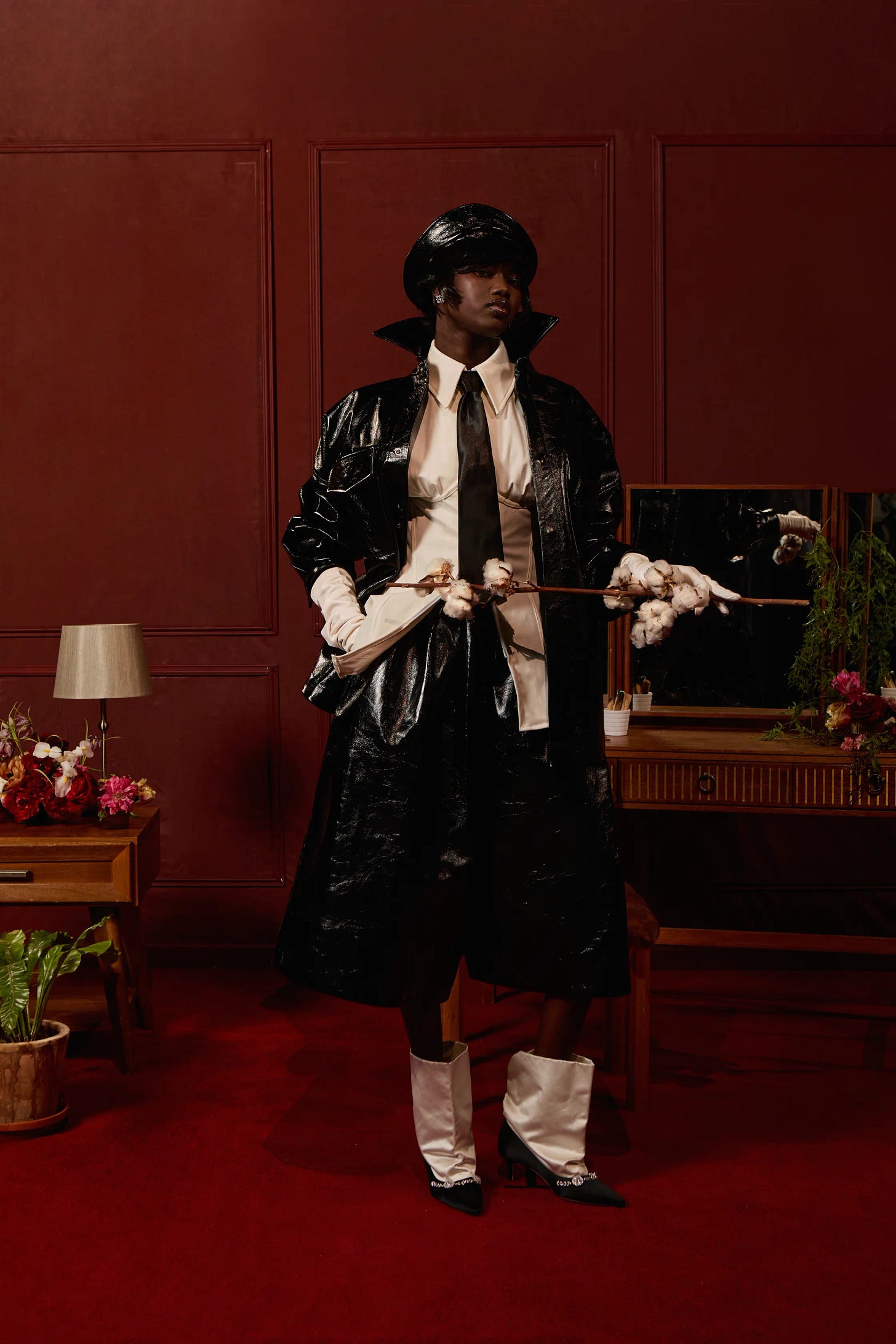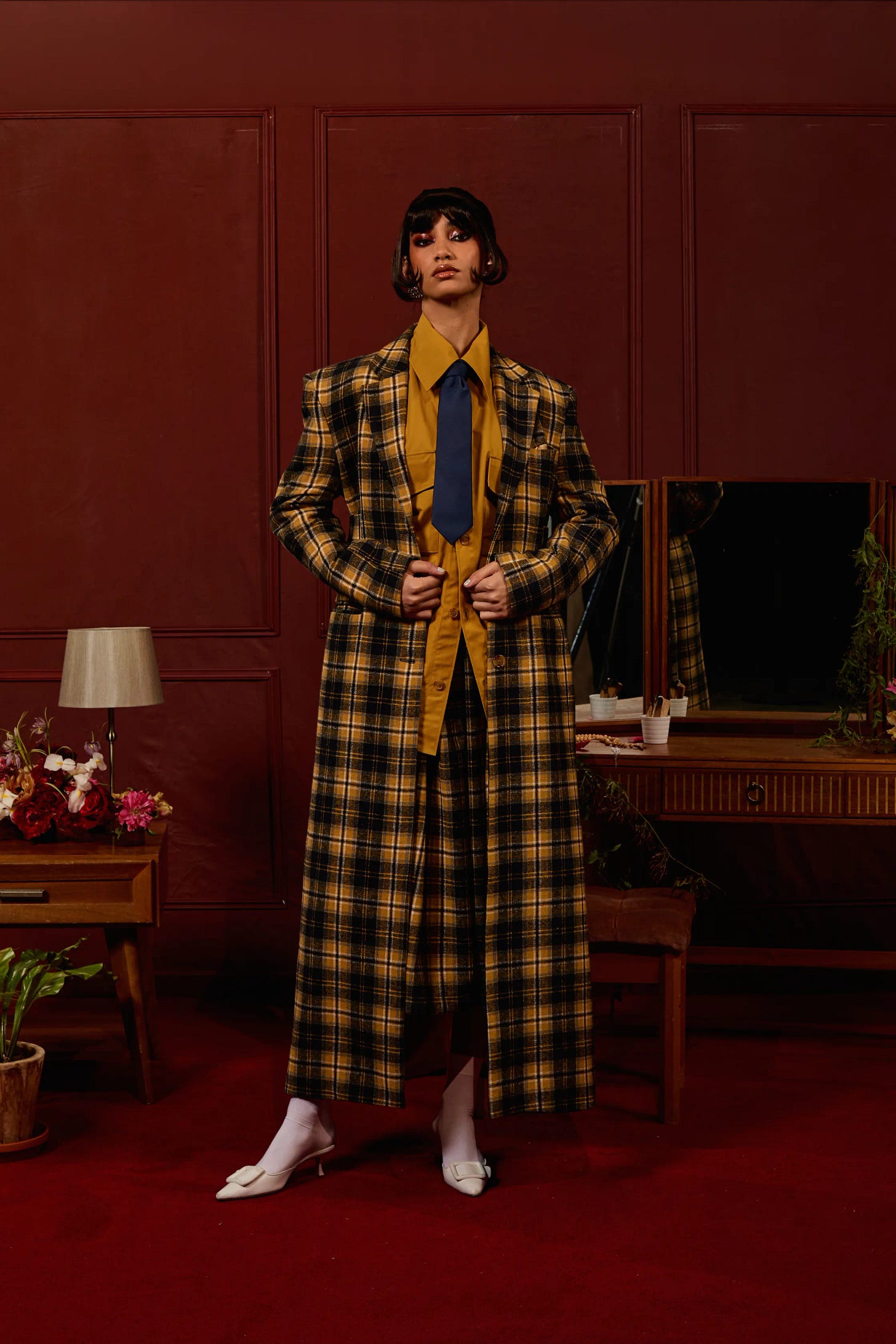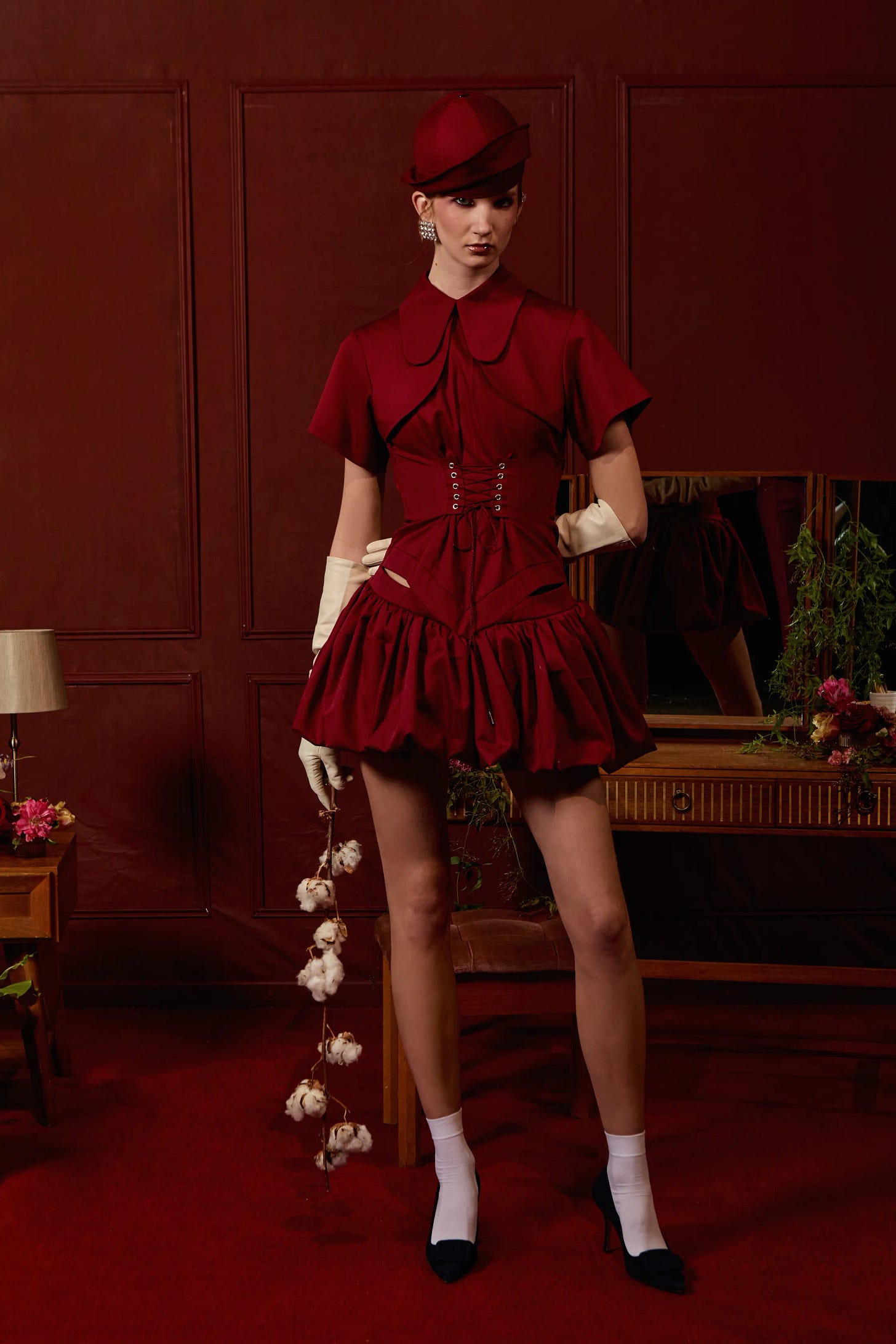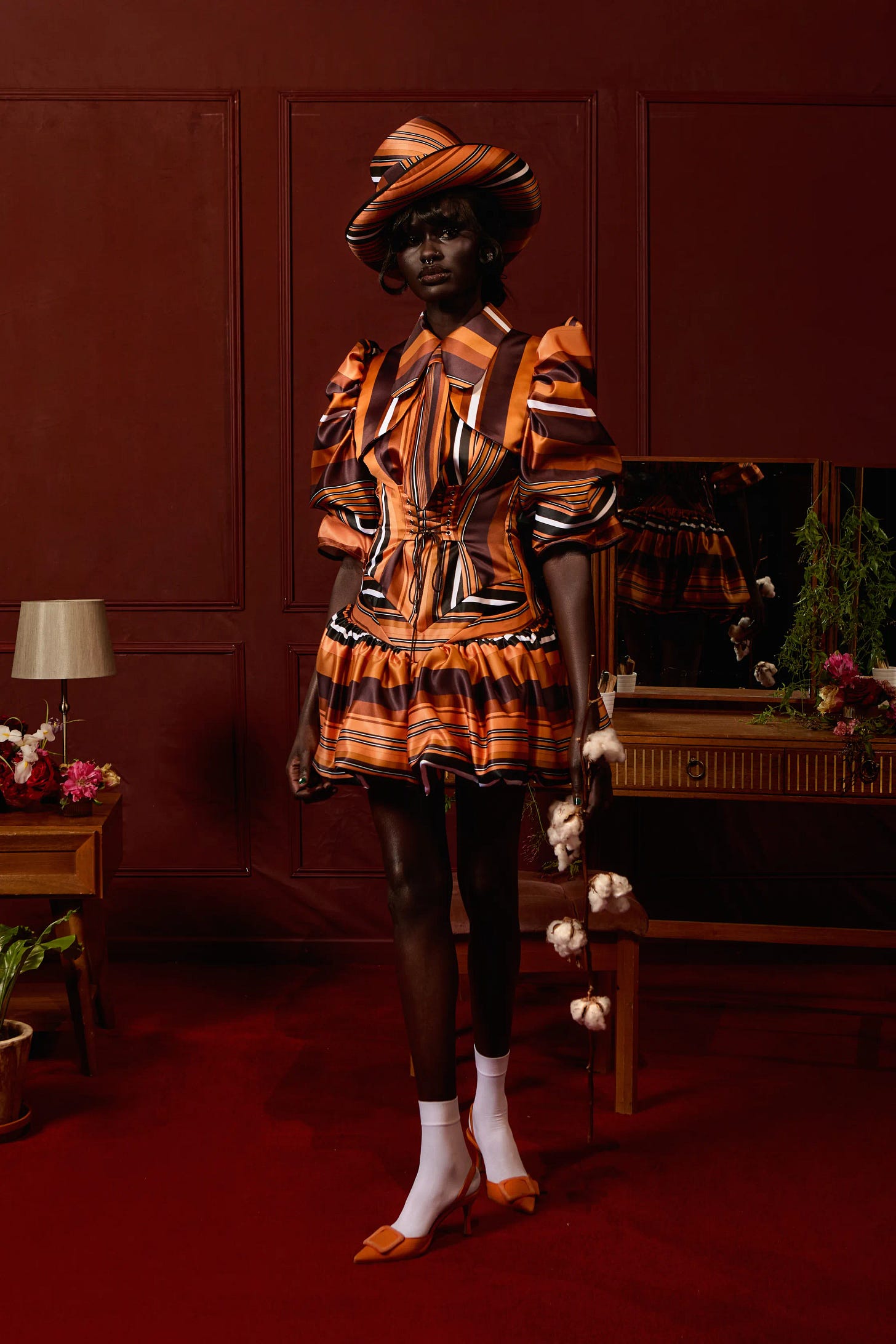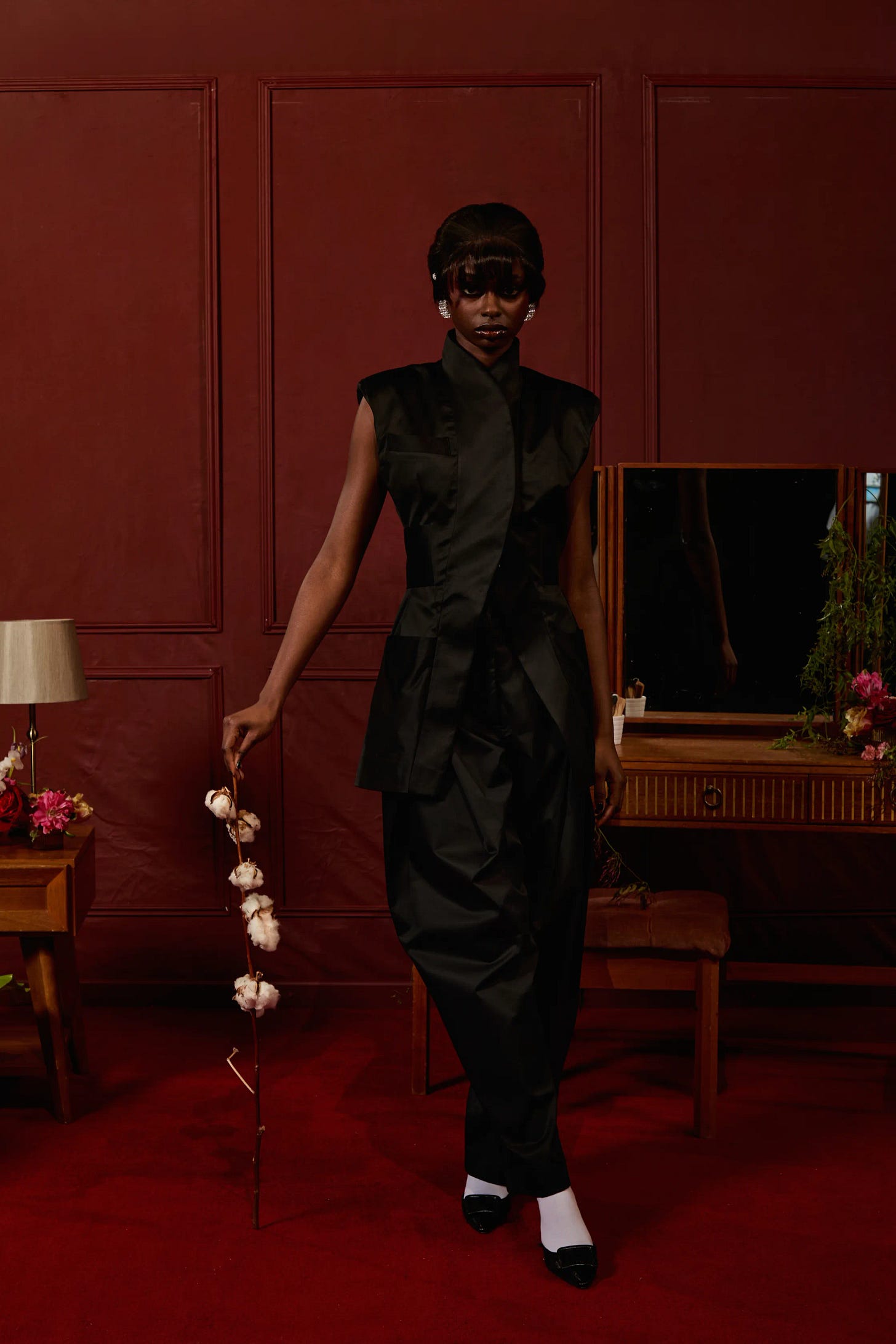Tolu Coker’s "Ori" Invites Women Into a Realm Where Identity Has No Limits
The theme is: Duality
The concept of duality is one that many struggle to grasp. We see it time and time again—when Kamala Harris was running for president, the world was committed to misunderstanding her heritage: How can she be both Indian and Black? Social media is a battlefield of discourse on whether South African singer Tyla can be a Black woman while also being mixed with other races.
There’s a lot of complexity to it, and I won’t pretend to have all the answers. But my question is this—why don’t we allow people to define themselves as they see fit? Why must identity be something we impose, rather than something we own?
Every day, society tries to box you into what they believe you should identify as. Why can’t we be a plethora of things?
Tolu Coker is my designer of interest, not just because her designs are breathtaking and meticulously crafted but because she is crafting a world. A world where women are powerful storytellers of their own identities. A world where heritage, history, and futurism collide in an unapologetically bold yet deeply personal way.
With her Fall 2025 Ready-to-Wear collection shown during London Fashion Week, Ori, Coker isn’t merely designing clothing; she’s building a cultural narrative. It’s a meditation on the intersections of identity, heritage, and power, reflecting the layered experience of British-Nigerian womanhood through garments that feel both intimate and universal.
“A big part of my messaging has always been about redefining luxury by rooting it back in heritage. And often that’s the heritage of communities that have traditionally not been documented or were not traditionally considered good enough or valuable enough to exist within that space,” Tolu tells Vogue.
The Duality of Heritage
I know this feeling well. I’ve spent my life balancing two worlds—one rooted in the traditions of my Nigerian ancestors, the other shaped by the New York streets I walk every day. Claiming both is powerful, but it’s not always easy. Are you one, the other, or some ever-shifting blend of both? Where do you fully fit in? Are you enough of one? Too much of the other? And who, exactly, gets to decide? All first-generation immigrants, I know you understand this.
To wear Ori is to name yourself before the world tries to do it for you. The silhouettes in this collection tell a story of duality, a concept Coker has long embraced in her work. Sharp tailoring meets voluminous skirts, corsetry meets fluidity, and structured outerwear meets soft draping. These contrasts honor both traditional Nigerian craftsmanship and the polished aesthetic of British fashion.
The colors tell a story. Earthy browns and burnt oranges—like the dust roads of Lagos at sunset. Deep jewel hues—like the stained-glass windows of a London cathedral. Two worlds, woven into one.
Duality.
Ori is more than clothing. It’s self-definition. In Yoruba, Ori means “head.” It’s your essence, your destiny, your compass in a world that tries to tell you who you should be. The collection embodies this philosophy, urging women to reclaim their narratives. Whether through the juxtaposition of power suiting and hyper-feminine details or the fusion of historical references with modern rebellion, Coker creates clothing that allows women to embrace all facets of themselves.
“A metaphysical concept regarding birthright and everything which is birthed from one’s aura, self or soul.” — Tolu Coker on the definition of “Ori.”
Strength in Structure
Tolu Coker’s mastery of tailoring has always been central to her work, and in Ori, she elevates it to an art form. The collection is filled with sharply cut blazers, oversized coats, and wide-leg trousers that exude quiet authority.
One standout look is a mustard-yellow and navy plaid suit, paired with a crisp button-down and a bold tie. It nods to British menswear traditions but subverts them through exaggerated proportions and unexpected color play—suggesting a woman who commands space on her own terms.
Corsetry and the Reinvention of Femininity
In contrast to the sharpness of suiting, Coker reclaims corsetry not as a tool of restriction but as a symbol of empowerment.
A deep red mini dress with structured boning and a voluminous skirt challenges historical narratives, framing the body in a way that feels celebratory rather than oppressive. The soft gathering of fabric at the hips juxtaposes with the rigidity of the bodice, creating a dynamic tension between power and grace. It’s femininity self-defined—unrestricted, unburdened, and fully owned.
A Heritage Woven In
Fabric as storytelling.
Coker seamlessly blends textures, patterns, and materials that reference her Nigerian heritage. A standout moment in the collection is a structured dress in rich burnt orange and brown striped fabric, reminiscent of aso-oke, a handwoven textile traditionally worn by the Yoruba people. This integration of traditional African textiles into contemporary silhouettes underscores Ori’s thesis—identity is not singular, but a tapestry of histories and experiences.
The Language of Cotton
One of the most striking elements in Ori is the recurring motif of cotton. Models walked the runway carrying raw cotton branches in their hands—a potent, unspoken commentary on history. It serves as a reminder of the labor and pain woven into the global textile industry, the forced contributions of Black bodies, and the erasure of their artistry from luxury spaces.
Placing this raw material within a high-fashion context forces the audience to reconcile beauty with its deeper, sometimes painful, origins. Coker doesn’t just design—she educates, she disrupts, she reclaims.
A New Uniform for the Future
Tolu Coker women are many things at once: strong yet romantic, structured yet fluid, rebellious yet deeply rooted in history. Through Ori, she doesn’t dictate what femininity should be…she offers women the tools to define it for themselves.
Identity is not a box. It’s a tapestry. And you are the one holding the thread.
MORE FASHION WEEK
connect with us: IG → pinterest → Twitter → bluesky







